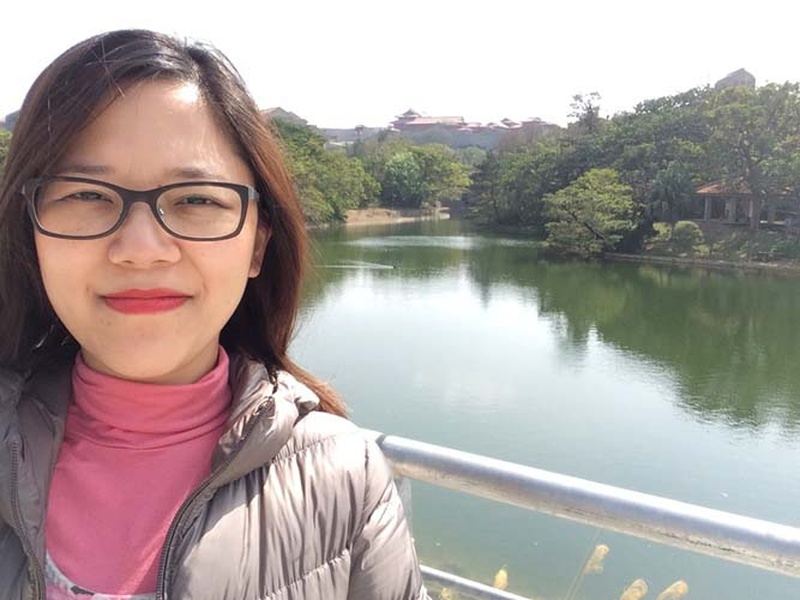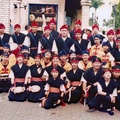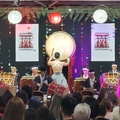Since childhood, I have made friends of both different and oriental ancestries – not only Japanese, but also Chinese and Korean descendants. Today I wonder if what brought us together was the fact that our cultures of origin were similar or if our unconscious made us feel more comfortable with our fellow humans, because we had a “familiar face”.
I started to notice, during my adolescence, in the 1990s, the groups of “Japanese” friends who were concentrated in greater numbers in certain schools. I noticed that they had a standardized behavior: the characteristic way of dressing, body language, interests and the places where they were. I saw it as a lack of personality and individuality, but, deep down, I was curious to know what it would be like to live only with equals, without any type of judgement.
Because others almost always imagined that I was quiet, shy, nerdy, serious.
So, until I was in college, despite being seen as most Japanese children and grandchildren seemed to be – a true stereotype , I didn't have much interest in learning about the culture of my roots in detail.
In the most varied situations, at different times and among different groups of Brazilians and Nikkei, I felt like a stranger, like an extraterrestrial, a being that does not belong to this world, to the reality lived here, to the community, because I am not a descendant.” authentic.” In fact, I ended up even more excluded by my own peers from this or that group. The impression I had was that I was the only one who hadn't created ties with my origins and, therefore, didn't fit in anywhere.
Who am I ?
Motivated by curiosity and perhaps answers, I began the journey of discovering my family history, both on my father's and my mother's side. I went beyond the home province, the year of arrival in Brazil and the places of destination – I considered it important to also look for living memory, my own grandparents. Despite their lucidity, they told me few things they remembered. I then continued my research through official means and by consulting other family members. I observed that, unfortunately, if information is not transmitted from generation to generation and/or recorded in some way, it spreads and gets lost.
I soon learned that my great-grandfather, my paternal grandmother's father, for unknown personal reasons, left his homeland and past in oblivion, while my great-grandmother, my maternal grandmother's mother, lost her life when her daughter was still a girl. Undoubtedly, both families were destined to move away from their roots.
[...] the current “colony” [1997] is a community organized, regionally, by people who dedicate themselves to agriculture and commerce, autonomously. And the way of thinking and being of the “colony” is a reflection of the consciousness of these people. These are the people who make their children study the Japanese language and insist that the teaching of the Japanese language is directed towards the formation of Japanese morals, which must be instilled in children.
This does not mean that highly educated Nikkei, perfectly assimilated into Brazilian society, lack awareness of their origins. However, between the consciousness of these people and the consciousness of those who currently support the “colony”, there is a great divergence, there is a great distance.
The maturation process
In fact, we mature over time. Every experience counts, just as every grain of sand contributes to structuring the floor and each brick to support a house. It would be like a puzzle, whose pieces we collect, store and then put together one by one according to the fitting format until we start to see a good part of the whole. A piece analyzed individually may seem to mean something incomprehensible, but as a whole it helps to construct meaning.
It is from there that facts and data connect, possible explanations emerge and the heart calms down. I realized that each story is unique and that I didn't need to share the same characteristics, the same interests, the same activities with groups of people who seemed to have many affinities. I also realized that these social circles functioned, at a certain point, as a guarantee of being something, of having something to identify with and who to identify with. I realized that several descendants do have the same questions as me. Similarity and particularity exist in synchrony.
I dare to close this reflection without an ending. What I want to say is that there are no ready and clear answers. The “I don’t know!” which would answer the question “Are you sansei or yonsei ?” It must be much more frequent than you imagine. But calm down, before my audacity is understood as mere petulance. After a series of clicks, flashes, insights , I point out the precious shortcut of the arduous journey – the reasons, the causes. Therefore, the “whys” make us go round and round, while the essential thing is to seek to know “what”, the beginning, the starting point, the origin.
note:
1. MIYAO, Susumu. Japanese-Brazilians: Assimilation Process (in Jornal Paulista – 05/31/1997) . São Paulo: Center for Japanese-Brazilian Studies, 2002.
© 2021 Tatiana Maebuchi






